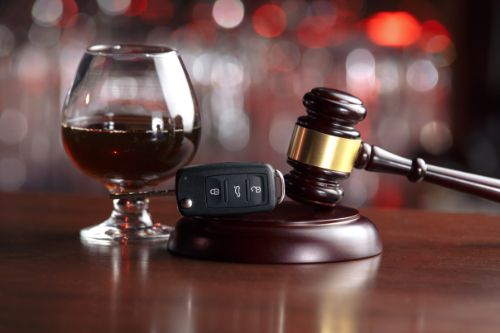In the state of Texas, facing a Driving While Intoxicated (DWI) charge can be a daunting experience. Apart from the potential legal consequences, one critical aspect that often catches individuals off guard is the swift and uncompromising nature of the license suspension process. The 15-Day Rule, a pivotal component in this process, demands immediate attention and understanding to navigate the complexities it presents.
The Essence of the 15-Day Rule
When charged with a DWI in Texas, the clock starts ticking from the moment you receive notice of the suspension of your driver’s license. This pivotal timeframe, known as the 15-Day Rule, underscores the urgency with which individuals must act to preserve their driving privileges. Failure to adhere to this strict timeline can result in automatic license suspension, making it imperative for those facing DWI charges to comprehend the nuances of the process
Initiating the Administrative License Revocation (ALR) Process
The 15-Day Rule primarily revolves around the Administrative License Revocation (ALR) process. Once charged with a DWI, the arresting officer typically seizes your driver’s license and issues a temporary driving permit that is valid for 40 days. However, within the initial 15 days following your arrest, you must request an ALR hearing to contest the impending license suspension.
Failure to request this hearing within the stipulated timeframe essentially waives your right to challenge the suspension, resulting in an automatic loss of driving privileges. This rule is unwavering, emphasizing the critical need for prompt action when facing a DWI charge.
The ALR Hearing
Upon requesting an ALR hearing, individuals gain the opportunity to challenge the impending license suspension. The hearing provides a platform to present evidence, question witnesses, and build a defense against the suspension. It is crucial to approach this hearing strategically, as a successful outcome can mean the retention of driving privileges, while an unfavorable decision can lead to suspension.
During the ALR hearing, various factors are considered, including the legality of the initial traffic stop, the validity of the arrest, and whether the individual refused or failed a blood or breathalyzer test. Understanding the intricacies of these factors is vital for building a strong defense and increasing the chances of retaining your driver’s license.
Breathalyzer Refusals and Failed Tests
Refusing a breathalyzer test or failing one can significantly impact the outcome of the ALR hearing and subsequent license suspension. Texas operates under implied consent laws, meaning that by obtaining a driver’s license, individuals implicitly agree to submit to alcohol or drug testing when arrested for a DWI.
Refusing a breathalyzer test can lead to an automatic license suspension for 180 days for a first offense and up to two years for subsequent offenses. On the other hand, failing a breathalyzer test can result in a suspension ranging from 90 days to two years, depending on prior DWI convictions.
Navigating the intricacies of breathalyzer tests and refusals requires a comprehensive understanding of Texas DWI laws and procedures. Legal representation becomes invaluable in crafting a defense that addresses these specific aspects to minimize the impact on your driving privileges.
Meeting the 15-Day Rule
To successfully navigate the 15-Day Rule and the subsequent ALR hearing, individuals must adopt a strategic and proactive approach. Understanding the timeline, gathering relevant evidence, and enlisting the experience of legal professionals are crucial steps in preserving driving privileges.
Promptly securing legal representation is pivotal in meeting the 15-day deadline. Attorneys experienced in Texas DWI laws can guide individuals through the intricacies of the ALR process, ensuring that all necessary documentation is submitted within the stipulated timeframe. This proactive stance can significantly influence the outcome of the ALR hearing, potentially leading to a favorable decision.
Legal Experience and Advocacy
Navigating the Texas DWI license suspension process requires more than a basic understanding of the law; it demands a nuanced approach backed by legal experience and advocacy. Attorneys well-versed in DWI defense possess the knowledge and experience to dissect the details of each case, identify potential defenses, and strategically present arguments during the ALR hearing.
Moreover, legal professionals can guide individuals on the best course of action regarding breathalyzer tests and refusals, helping mitigate the potential consequences on license suspension. Their familiarity with the nuances of Texas DWI laws positions them as invaluable allies in the fight to retain driving privileges.
The 15-Day Rule is a formidable aspect of the Texas DWI license suspension process, demanding swift and informed action. Understanding the implications of this rule, the significance of the ALR hearing, and the potential consequences of breathalyzer refusals or failed tests is paramount for those facing DWI charges.
In the face of these challenges, seeking legal representation from professionals like Rush & Gransee, L.C. can make a significant difference. Their seasoned attorneys bring a wealth of experience in DWI defense, ensuring that clients meet the stringent requirements of the 15-Day Rule and navigate the complex ALR process with confidence.
As you confront the legal complexities of a DWI charge, remember that time is of the essence. Act promptly, gather relevant information, and seek the guidance of legal professionals who can provide the advocacy needed to safeguard your driving privileges.
Contact Rush & Gransee, L.C. today to secure the legal support necessary to navigate the Texas DWI license suspension process effectively.